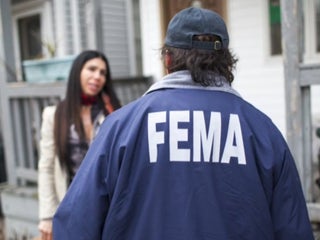
FEMA Faces Readiness Crisis Ahead of Hurricane Season, Report Warns
Hey everyone, let’s talk about something serious and pressing: FEMA's readiness—or lack thereof—for the 2025 hurricane season. If you've been following the news, you probably saw that a recent internal review obtained by CBS News has revealed some troubling details about FEMA’s preparedness, or more accurately, its lack of it, just weeks before hurricane season officially begins on June 1.
According to the review, FEMA is “not ready” for the upcoming storm season. This isn't just an outside opinion—it's from inside the agency itself. The presentation, ordered by FEMA’s new acting administrator David Richardson, points to major organizational struggles. Staff cuts, disjointed contract management, low morale, and mission confusion have derailed the usual preparations. One slide even admits that the hurricane readiness process “has been derailed this year due to other activities like staffing and contracts.”
Also Read:- Michael O'Loughlin Medal Shines Spotlight on Swans Star and AFL Indigenous Legacy
- Fallen Chef Giovanni Apollo Faces Grave Sexual Assault Charges
That statement alone is alarming. FEMA is supposed to be the nation's backbone in disaster response. If they're unsure about their own capabilities, how are communities supposed to feel secure?
The backdrop of this internal chaos is political pressure. President Trump has been openly critical of FEMA, even floating the idea of eliminating the agency or significantly downsizing it into more of a support role, leaving the bulk of disaster response to individual states. The previous acting administrator, Cameron Hamilton, was reportedly fired after pushing back against those ideas, and now Richardson—a former Marine aligned with Trump’s agenda—is at the helm, aiming to shift more responsibility to state governments.
And this philosophy is already showing up in practice. Richardson has mentioned states like California and Texas as capable of handling their own disasters. But let’s not forget how devastating Texas’ 2021 winter storm was, when FEMA had to step in due to the collapse of basic infrastructure. That’s a dangerous precedent to set—assuming states can always manage alone.
Meanwhile, in places like New Bern, North Carolina—still recovering from past hurricanes like Florence—residents and business owners are feeling uneasy. They know the reality of storm damage. Bill Franklin, who owns a shop in New Bern, recalls the destruction Florence brought, and emphasizes how essential FEMA’s help was back then. And many locals agree: FEMA, while not perfect, is crucial and must be improved, not gutted.
Even New Bern’s Mayor Odham is urging citizens to prepare independently—stocking up on essentials, staying alert, and expecting the unexpected—because the usual federal safety net might not be as strong this time around.
So here we are, standing at the threshold of another potentially dangerous storm season, with an agency in transition, leadership under political pressure, and public trust wearing thin. The internal report was called a misrepresentation by DHS officials, claiming it was just one line from a broader conversation. But even so, that single line encapsulates a larger, unsettling truth—FEMA is in a state of flux when we need it the most.
We can only hope the agency finds its footing quickly. Because storms don’t wait for bureaucracy to catch up.
Read More:

0 Comments